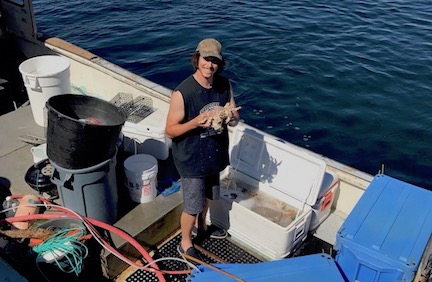Training 21st Century commercial fishermen
Ever thought about a career in commercial fishing?
Most kids haven't. Globally, fishing gets a bad rap. But California has some of the strictest environmental, food safety and workers' rights regulations in the world, making our catch some of the most responsibly sourced you can find.

Despite the downsizing of California commercial fisheries, fishing still provides a viable career for young people, especially given a renewed interest in emerging fisheries and a local food movement that supports the development of direct marketing of seafood products, which allows fishermen to earn a higher price for their catch.
These new marketing and fishing opportunities, however, are not well known, and taking advantage of them requires training because regulations are complex and selling one’s product requires a lot of skills. Further, California's commercial fleet is aging, and there is a need to recruit young, well-educated people into commercial fisheries to maintain this important California coastal heritage.
In response, we are developing an apprenticeship program to help educate young people about the opportunities in commercial fishing, as well as the regulations, skills and co-management approaches necessary to keep commercial fishing economically, ecologically and socially sustainable.
Project team: T.S. Talley, C. Culver- CASG-SIO-UCSD; P. Halmay-San Diego Fishermen's Working Group; C. Miller, J. Betts- Santa Barbara Commercial Fishermen; S. Schroeter- UCSB; L. Fandino-UC Extension; M. Robinson, M. Paddack- Santa Barbara City College; L. Ornelas, G. Choe, D. Willkie- Miramar Community College; L. Behnken- Alaska Longline Fishermen's Association; V. Rodriguez-CA Dept Apprenticeship Standards. Funding: NFWF


